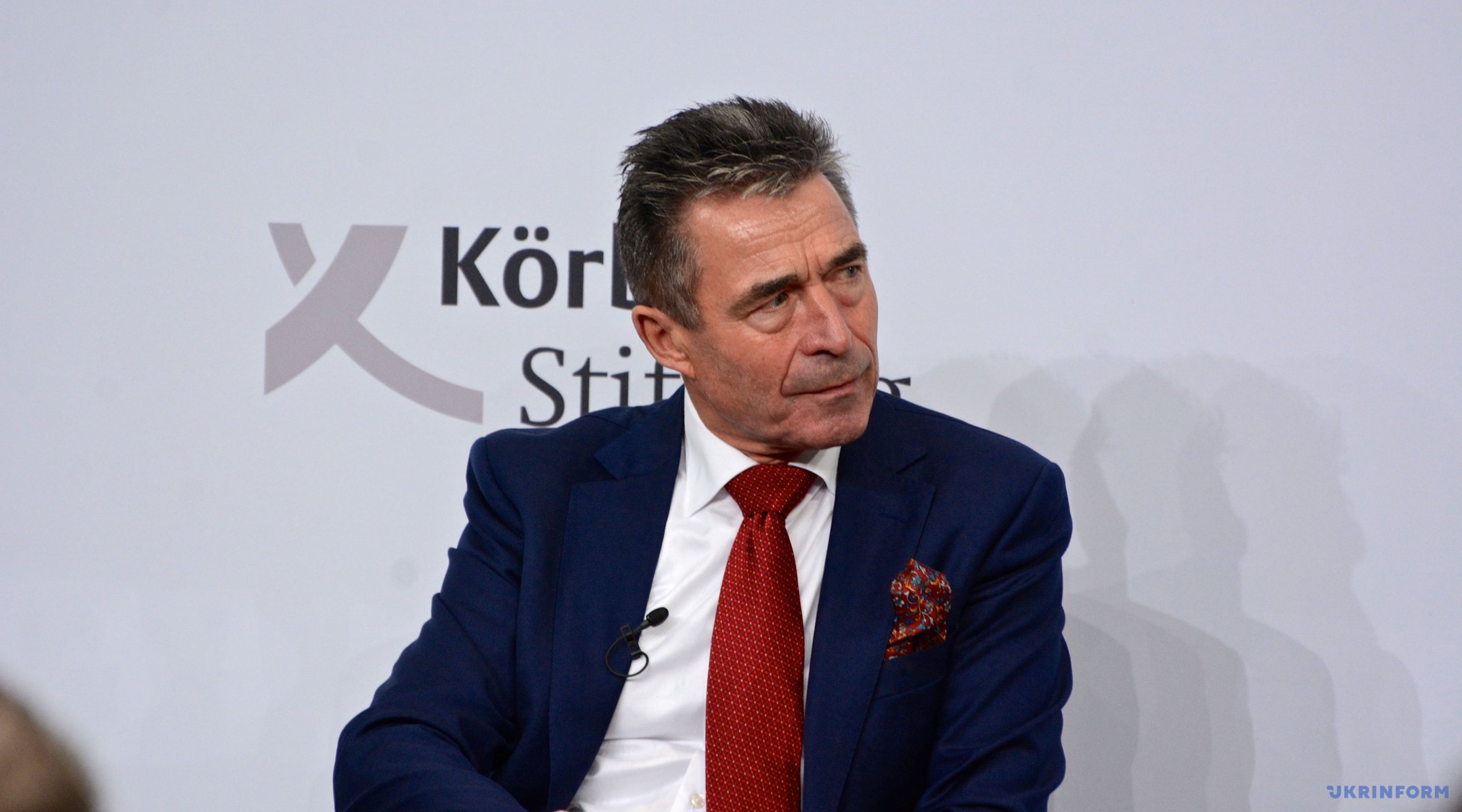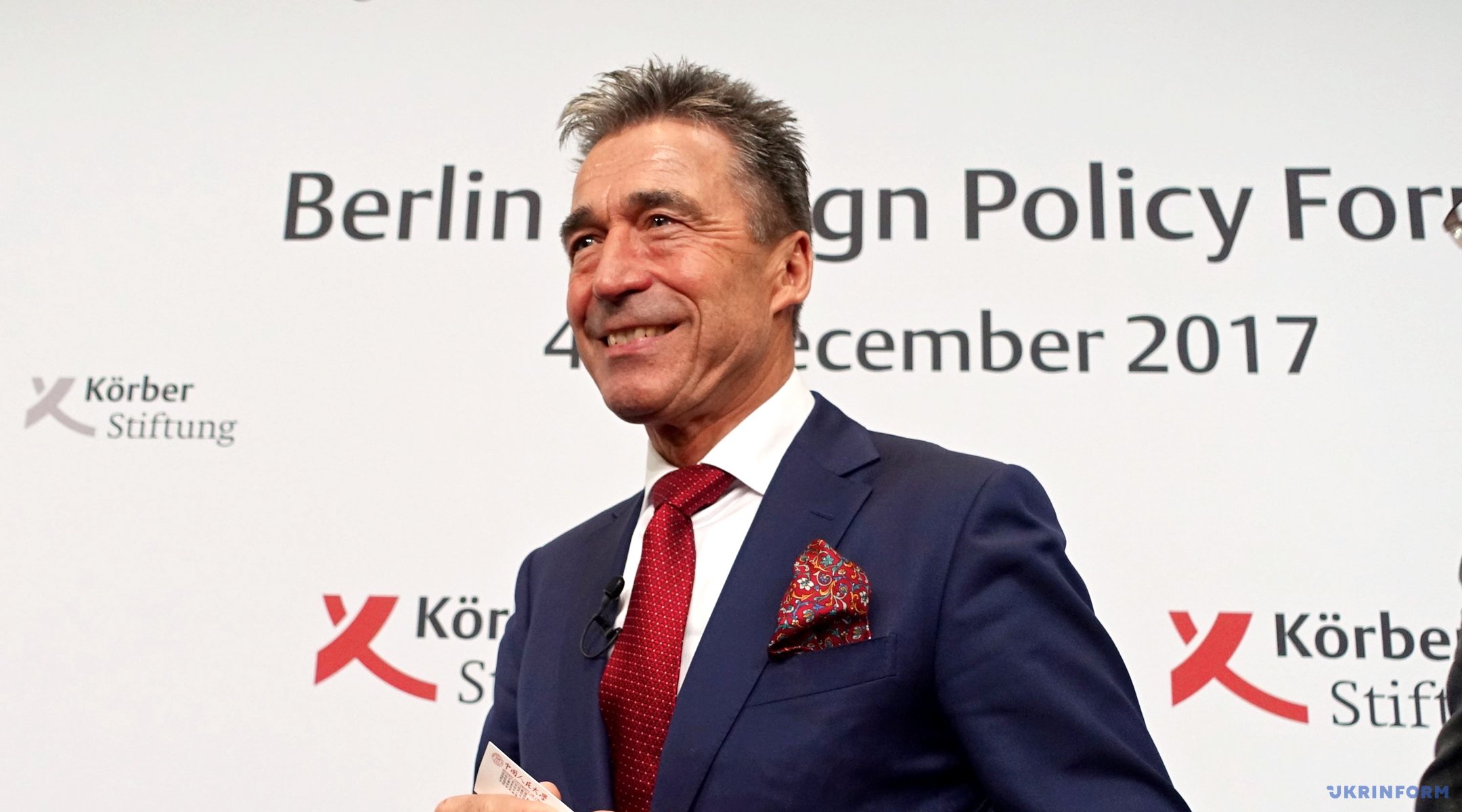Danish politician Rasmussen is currently a recognized lawyer of Ukraine in the Euro-Atlantic community. The former head of the North Atlantic Alliance (2009-2014) consistently defends the interests of Kyiv and Ukrainians amid a real war unleashed by Russia against Ukraine and a hybrid war against Western democratic societies.
An adviser to Ukraine's president, Rasmussen, spoke in an interview with Ukrinform's correspondent in Brussels about the prospects of Ukraine's joining NATO, the assessment of Putin's recent re-election and a possible Baltic scenario for the occupied Crimea.
Q: Mr. Rasmussen, the alliance has recently formally added Ukraine to the list of four countries that have officially declared their Euro-Atlantic aspirations to become NATO members in the future. This term is called "aspirant country" among politicians and experts. How do assess this development for Ukraine, and what does this status mean?
A: Actually, I do not consider that a new status. Of course, it's an update that just reflects the new realities in Ukraine. The background is the following. In 2008, we took the decision at the Bucharest Summit that Ukraine will become a member of NATO. That was because Ukraine requested a Membership Action Plan. We could not agree on that, but we said: "Ok. But you will become a member, provided, of course, that Ukraine so wishes."
Then Yanukovych was elected president. He changed the Ukrainian approach, aspiring for an alliance-free status. So we respected that. Then he fled.
And we had a new president and a new Rada. And they have clearly indicated their intention to return to the previous position, namely to strive for at least a future closer relationship between Ukraine and NATO.
I consider it a mistake that NATO forgot to update the website on that. They've done so with certain delay.

Q: Russian President Putin has started his fourth term. What should the West expect in the future from the Kremlin's leader and how to act amid the escalation of Russia's aggressive behavior and the unleashed hybrid war that already has all the signs of a "cold" confrontation?
A: I think we should hope for the best, but prepare for the worst. We could hope for the best, of course, that President Putin would use, what we may consider, his last presidential term to improve relations between Russia and the West. However, I think we could fear the worst, namely that he will toughen his stand. So how could we prepare for the worst? My experience is that the only way to get Putin to understand that he needs to cooperate with us in a constructive manner is to uphold a firm stand, unity not only within Europe, but also between Europe and the U.S. and to demonstrate to Putin that he is confronted with a united alliance and he cannot play games.
I think we should uphold the pressure on Russia until they change their behavior. We should even strengthen sanctions, deliver defensive weapons to Ukraine, etc.
Q: Putin's recent address to the Russian Federal Assembly where he rattled nuclear sabers only confirmed Moscow's aggressive intentions amid growing international isolation...
A: First of all, I'm very much concerned about the use of such language from the Russian side. I think that it is illustrative that even during the Communist regime in the Soviet Union they never ever raised the issue of nuclear weapons. We knew they had them, but they didn't touch upon that issue. But now they have a new regime that, now and then, raises the issue of nuclear weapons, and we are very much concerned about that.
I tend to think that he exaggerated a bit. I'm not sure they possess such weapons yet, but the fact that he raises the issue is, of course, meant as a threat against the West.

Q: Ukraine's leadership initiated the creation of a certain international format for de-occupation of Crimea. What is your vision of the prospects for restoring Kyiv's sovereignty over the currently occupied peninsula?
A: My position is very clear. When he attacked Ukraine and illegally annexed Crimea to the Russian Federation, he violated international law. So we should never ever recognize that illegal annexation of Crimea into the Russian Federation. Never!
I would compare the situation to the destiny of the three Baltic States. They were also during the Second World War annexed illegally to the Soviet Union, and for a long time people thought they were lost and they will never ever regain their independence. But then suddenly circumstances changed and they regained independence. They became individual states, and now they are members of NATO and the EU.
We hope that in the future the situation may change with respect to Crimea.
Andrii Lavreniuk, Brussels
